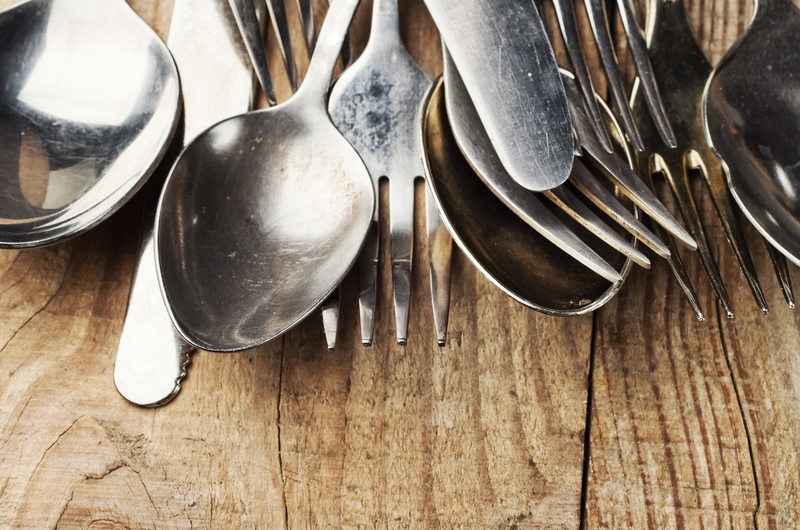Unlock the Elegance of Jewellery Cleaning Methods
Posted on 27/06/2025
Unlock the Elegance of Jewellery Cleaning Methods: A Complete Guide
Jewellery has long been a symbol of elegance, status, and personal expression. Over time, even the most exquisite pieces may lose their luster due to daily wear, environmental exposure, and the accumulation of oils or dirt. Fortunately, with the right jewellery cleaning methods, you can restore and maintain the brilliance and charm of your cherished adornments. This article delves into the most effective techniques, tips, and frequently asked questions to help you unlock the elegance of your favourite pieces.

Why Is Jewellery Cleaning Important?
Maintaining clean jewellery isn't just about aesthetics--it's about preserving the integrity and longevity of your valuable accessories. Dirt, sweat, lotions, and environmental pollutants can accumulate on the surface and in crevices, dulling gemstones and metals. Regular jewellery maintenance can:
- Enhance the natural sparkle and brilliance of stones and metals
- Prevent tarnishing and corrosion of precious metals such as gold, silver, and platinum
- Reduce the risk of infections for items like earrings and body jewellery
- Protect the settings and reduce the likelihood of stone loosening or loss
- Increase the lifespan of your beloved treasures
Common Types of Jewellery and Their Cleaning Needs
Different materials require different jewellery cleaning methods. Here's a detailed look at the most common types:
1. Gold Jewellery
- Gold is resistant to tarnish but can develop buildup from skin oils and lotions.
- Use mild dish soap and warm water. Avoid abrasive cleaners or rough brushes that could scratch the surface.
2. Silver Jewellery
- Silver is prone to tarnishing, especially when exposed to air and moisture.
- Use a designated silver polish or a homemade paste with baking soda and water. Store silver pieces in anti-tarnish pouches or cloths.
3. Platinum Jewellery
- Platinum is durable but can develop a patina over time.
- Clean with a mixture of soap and warm water, using a soft, lint-free cloth.
4. Gemstone Jewellery
- Different gemstones have varied sensitivities.
- Use gentle, non-abrasive cleaners and avoid ultrasonic machines for softer stones like pearls, opals, or turquoise.
5. Costume and Fashion Jewellery
- These often have non-precious metals or glued stones that can be damaged by moisture.
- Wipe with a dry, soft cloth and avoid water-based cleaning entirely when possible.
Most Effective Jewellery Cleaning Methods
To unlock the elegance of your jewellery collection, here are the best jewellery cleaning techniques for every type of piece.
1. The Classic Soap and Water Method
- Fill a small bowl with warm water and a drop of mild dish soap.
- Soak the jewellery for 15-20 minutes.
- Use a soft-bristled brush (a toothbrush works well) to gently scrub crevices.
- Rinse thoroughly with clean water and dry with a soft, lint-free cloth.
This gentle method is safe for most gold, silver, platinum, and diamond jewellery.
2. Baking Soda Paste
- Mix 2 parts baking soda with 1 part water to create a thick paste.
- Apply the paste to your silver jewellery using a soft cloth.
- Gently rub, rinse with warm water, and polish with a dry cloth.
Pro Tip: Avoid using baking soda on soft gemstones or plated pieces, as it can be abrasive.
3. Professional Ultrasonic Cleaners
- Ultrasonic machines use sound waves to dislodge dirt and debris from hard-to-reach crevices.
- Only suitable for hard stones like diamonds, sapphires, and rubies set in durable metals.
- Never use this method for pearls, opals, or emeralds, as the intense vibrations may cause damage.
Use according to manufacturer instructions for the best and safest results.
4. Store-Bought Jewellery Cleaners
- There are many cleaning solutions formulated for specific metals and stones.
- Ensure you read labels and match the cleaner to your type of jewellery.
- Wear gloves and rinse thoroughly after cleaning to prevent residue buildup.
5. Natural Cleaning Techniques
- For a chemical-free clean, use white vinegar and baking soda for tarnished silver (never use on gemstones).
- Lemon juice mixed with a pinch of salt can brighten gold (but avoid on stones and pearls).
- Olive oil and lemon juice can safely clean and condition vintage or antique gold pieces.
How Often Should You Clean Your Jewellery?
The frequency depends on the type and how often you wear it. Here's a basic guide:
- Everyday pieces (rings, pendants, earrings): Clean once every two weeks.
- Occasional pieces (bracelets, brooches, necklaces): Clean every 4-6 weeks.
- Heirlooms or delicate pieces: Professional cleaning once or twice a year, with gentle at-home cleaning as needed.
Remember: Always check settings and clasps for wear or loose stones during cleaning.
Tips to Maintain Elegance and Shine in Your Jewellery
Effective jewellery cleaning methods should be complemented by smart jewellery habits. Here are essential maintenance tips:
- Store each piece separately in soft pouches or lined boxes to prevent scratches.
- Remove jewellery before swimming, showering, or applying lotions and perfumes.
- Avoid direct sunlight and extreme temperatures, which can damage stones.
- Have prongs and settings checked regularly by a professional jeweler.
- Do not use harsh chemicals or abrasive materials that could harm metals and stones.
DIY Versus Professional Jewellery Cleaning
While many jewellery cleaning methods can be performed at home, there are times when professional services are essential:
- For deep cleaning and polishing, especially for vintage or high-value items
- When working with fragile, intricate, or heirloom pieces
- If you notice damaged settings, loose stones, or visible wear
Professional jewelers use specialised tools and cleaning agents and can also perform necessary repairs, ensuring your pieces retain their elegance and structural integrity.
Common Mistakes to Avoid When Cleaning Jewellery
Unlocking the elegance of your jewellery also means understanding what not to do during the cleaning process:
- Never use bleach, acetone, or ammonia on fine jewellery--these chemicals can erode metals and irreparably damage stones.
- Don't use toothpaste or baking soda on soft stones or plated metals--the abrasiveness can cause scratches.
- Avoid ultrasonic cleaners for organic gems like pearls, amber, or coral.
- Do not soak glued jewellery in water or solutions--moisture can loosen the glue.
Eco-Friendly Jewellery Cleaning Solutions
For environmentally conscious jewellery lovers, here are some eco-friendly cleaning alternatives:
- Use distilled water and mild natural soap for routine cleaning.
- Try white vinegar and baking soda as a natural silver polish.
- Polish with a soft, recycled cloth instead of disposable wipes or tissues.
- Refrain from overusing chemical cleaners, especially for regular upkeep.

Frequently Asked Questions About Jewellery Cleaning
- How do you clean jewellery at home?
- The easiest way is to use warm water with mild dish soap. Soak, gently brush, rinse, and dry thoroughly.
- Is ultrasonic jewellery cleaning safe for all gemstones?
- No. It's suitable for diamonds, sapphires, and rubies, but not for softer or porous gemstones like pearls, opals, or emeralds.
- What's the best way to clean silver jewellery?
- Use a silver polish or a baking soda paste. Store in anti-tarnish bags to prevent future tarnishing.
- How often should you clean your wedding ring?
- Once every two weeks for at-home cleaning and professional cleaning every six months.
- Can you use vinegar on gold jewellery?
- Vinegar is better for silver. For gold, stick with gentle soap and water to avoid damage.
Conclusion: Embrace the Elegance Through Proper Jewellery Care
Unlocking the elegance of jewellery cleaning methods is about more than just sparkle--it's a form of self-care and preservation that ensures your precious pieces remain stunning and comfortable to wear for generations. With the right techniques and regular maintenance, you can protect your investment and enjoy the radiant beauty of your collection every day.
Make it a point to adopt these jewellery cleaning tips for a lifetime of elegance and brilliance. Whether you are cleaning a treasured diamond ring, a beloved silver bracelet, or dazzling gemstone earrings, following expert advice will keep every piece worthy of admiration.
Even More Ways to Keep Your Jewellery Elegant:
- Invest in a quality jeweller's cloth for daily touch-ups.
- Schedule occasional professional cleanings for irreplaceable pieces.
- Share your knowledge with others so everyone can unlock jewellery elegance and maintain their favourites in pristine condition.
With these comprehensive jewellery cleaning strategies, you're now ready to keep every cherished piece as beautiful as the day you received it.





